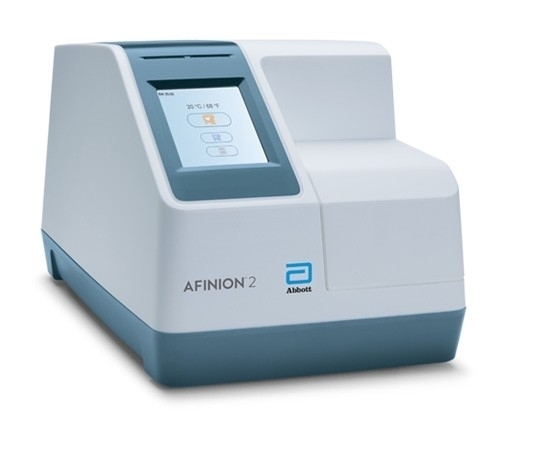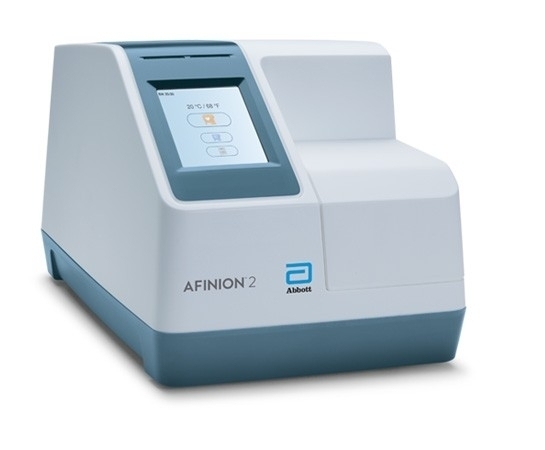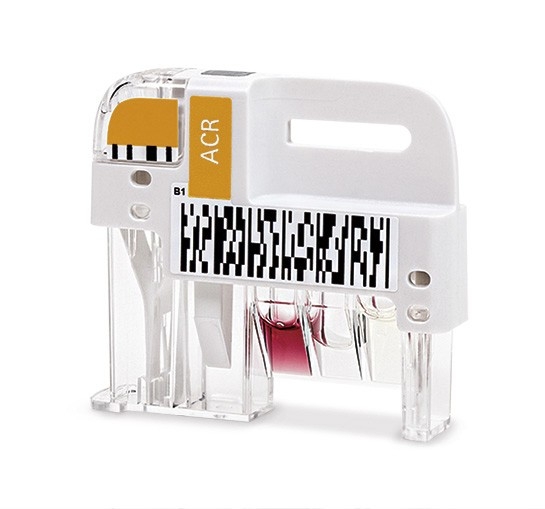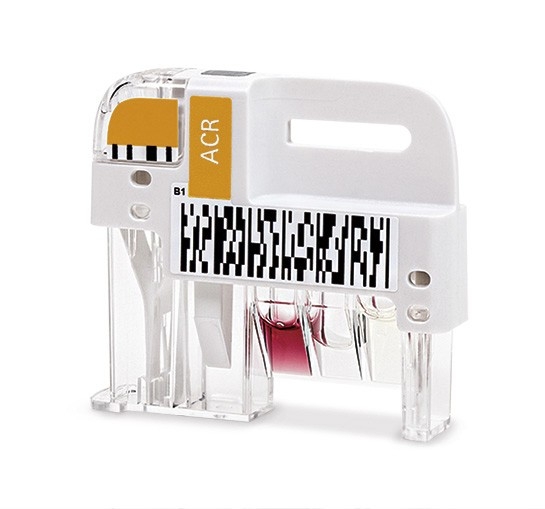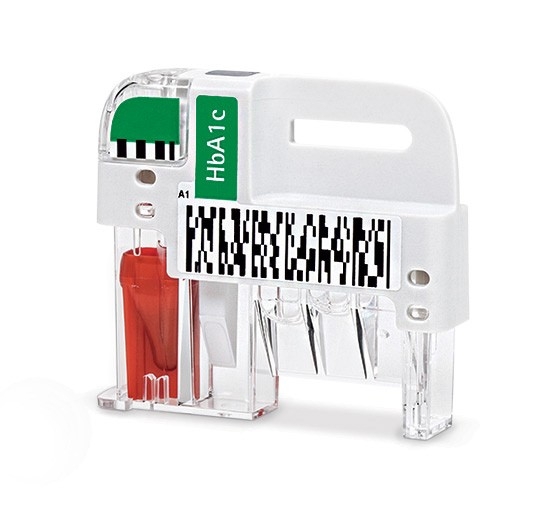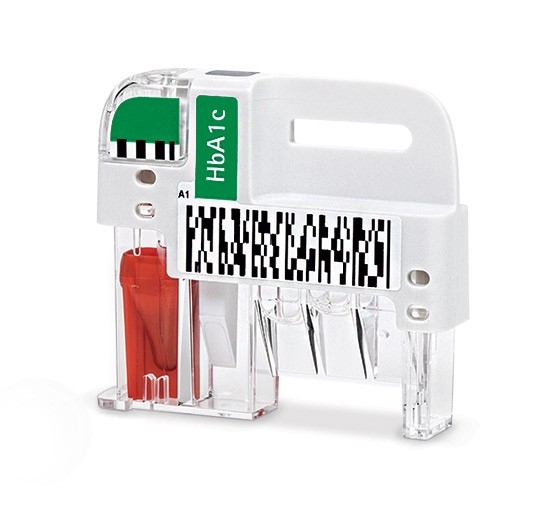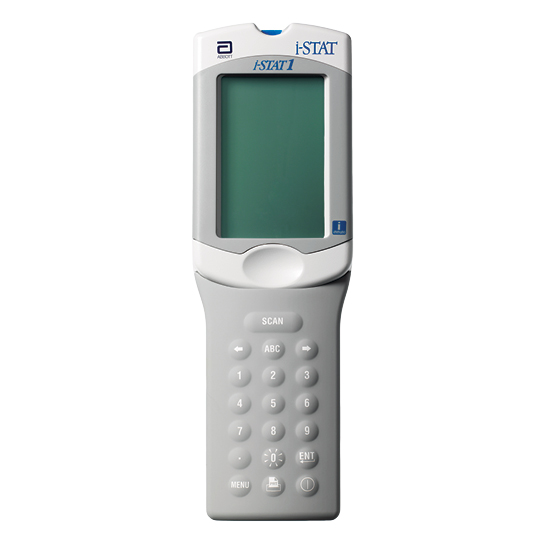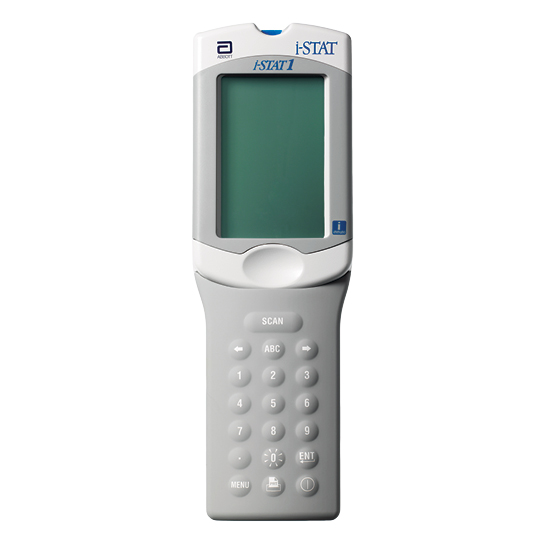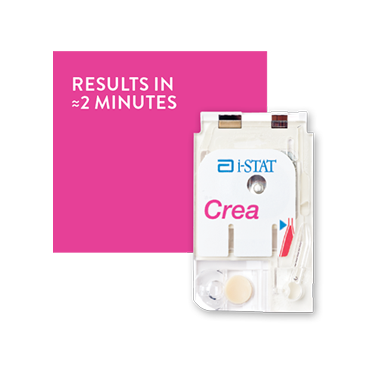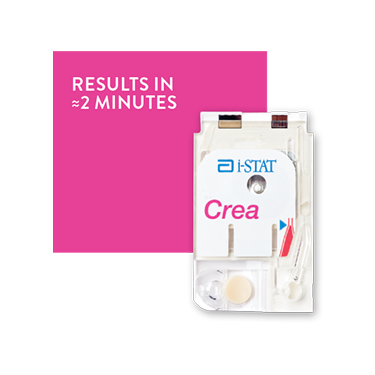global point of care
March 10 is World Kidney Day
World Kidney Day continues to raise awareness of the increasing burden of kidney diseases worldwide and calls for kidney health for everyone. Specifically, the World Kidney Day initiative highlights the importance of preventive interventions that can avert the onset and progression of kidney disease.1
Kidney disease can be prevented and progression to end-stage kidney disease can be delayed with appropriate access to basic diagnostics and early treatment. With point-of-care testing, primary healthcare providers can do just that - in minutes.
Early check-ups can avert the onset and progression of kidney disease1
Kidney disease is one of the most serious complications of diabetes. When your kidneys are damaged by diabetes and/or high blood pressure, they're less able to work effectively.
Kidney disease can be prevented and progression to end-stage kidney disease can be delayed with appropriate access to basic diagnostics and early treatment.1 That's why the American Diabetes Association (ADA) recommends annual screening - especially with at-risk patients. Global studies point to obesity, hypertension, diabetes, hyperlipidemia and smoking as the biggest risk factors.2
Identifying renal disease early - and monitoring it consistently - can make all the difference.
Did you know...
An annual assessment of the ACR value in patients with diabetes, as recommended by the guidelines, may positively affect the diagnosis of diabetic kidney disease and subsequently allow better management of patients with diabetes.
~ Impact of Albumin-to-Creatinine Ratio Point-of-Care Testing on the Diagnosis and Management of Diabetic Kidney Disease.
(Schultes et al. J Diabetes Sci Technol 2021)3
Early check-ups can avert the onset and progression of kidney disease1
Kidney disease is one of the most serious complications of diabetes. When your kidneys are damaged by diabetes and/or high blood pressure, they're less able to work effectively.
Kidney disease can be prevented and progression to end-stage kidney disease can be delayed with appropriate access to basic diagnostics and early treatment.1 That's why the American Diabetes Association (ADA) recommends annual screening - especially with at-risk patients. Global studies point to obesity, hypertension, diabetes, hyperlipidemia and smoking as the biggest risk factors.2
Identifying renal disease early - and monitoring it consistently - can make all the difference.
Did you know...
An annual assessment of the ACR value in patients with diabetes, as recommended by the guidelines, may positively affect the diagnosis of diabetic kidney disease and subsequently allow better management of patients with diabetes.
~ Impact of Albumin-to-Creatinine Ratio Point-of-Care Testing on the Diagnosis and Management of Diabetic Kidney Disease.
(Schultes et al. J Diabetes Sci Technol 2021)3
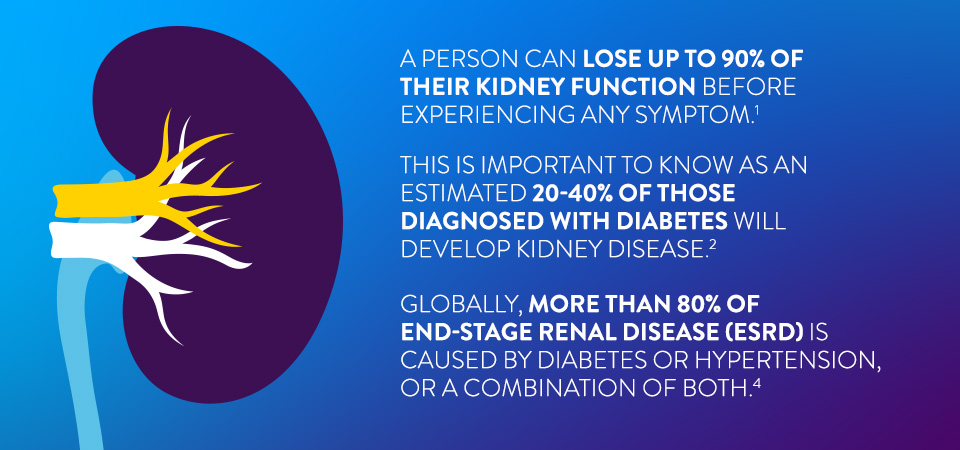
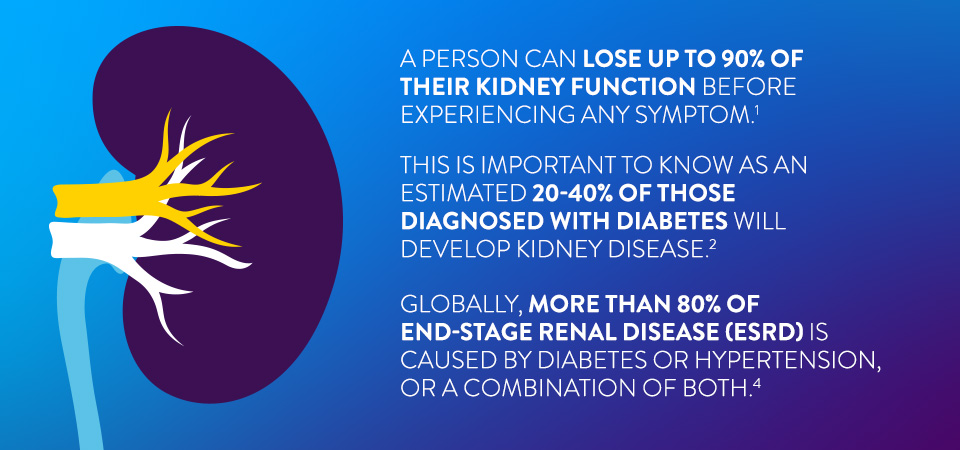
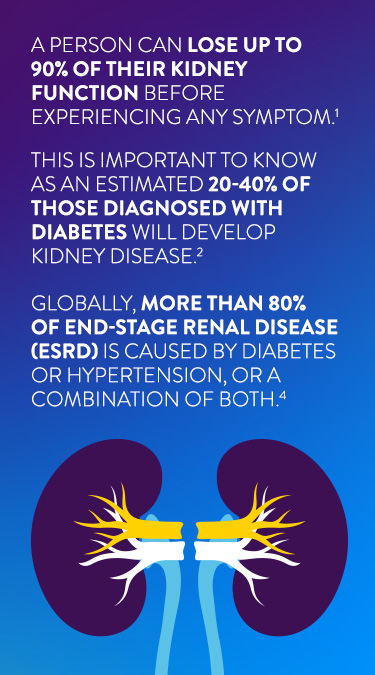
Rapid diagnostics can help with kidney disease prevention
Rapid point-of-care testing such as Afinion™ ACR assay enable healthcare providers to detect and treat kidney disease in minutes. Measuring ACR increases the accuracy compared to urine albumin only. ACR is the recommended method by ADA2 and NKF5 to determine albuminuria.
By combining immediate treatment with the necessary lifestyle changes - such as maintaining blood glucose, blood pressure and cholesterol levels - many people with diabetes are able to delay the onset of complications - or prevent them altogether.2
Accurate, fast and simple to use, they help patients better manage their diabetes and prevent costly medical events in the future.
Minimize risk for patients by assessing renal function
Imaging agents (such as iodine and barium) used in radiological procedures can pose serious health risks to patients with certain conditions.5 To minimize risk, creatinine measurement of renal function is recommended prior to administering imaging agents.6 Because it may take 60 minutes or more for the clinical lab to process creatinine tests,7 measuring creatinine with Abbott’s i-STAT Crea cartridge can be used to minimize disruptions and improve efficiencies by allowing for rapid measurement of creatinine levels and calculation of estimated glomerular filtration rate (eGFR), which can inform whether the kidneys are working properly.
In an article published in British Journal of General Practice, i-STAT Crea test values showed excellent correlation (R2 = 0.99) compared with core lab values, with the authors concluding that the i-STAT System could help improve efficiency, providing accurate, up-to-date creatinine/eGFR values in patients presenting for scans requiring contrast media.8
Related Products
Afinion™ 2 System
Immediate results mean immediate advice.
People with diabetes and hypertension are at a significantly higher risk of developing kidney damage. Identifying and monitoring renal disease in patients with diabetes and hypertension can make all the difference — and Abbott makes it fast and easy with a compact rapid, multi-assay analyzer that provides valuable near patient testing at the point-of-care.
Afinion™ ACR
Accurate results in 5 minutes
Part of a multi-assay system, the Afinion™ ACR helps you test for quantitative determination of albumin, creatinine and albumin/creatinine ratio (ACR) in human urine. This test is used with patients who have chronic conditions, such as diabetes and hypertension, to detect kidney disease at an early stage.
Afinion™ HbA1c
Short assay time in 3 minutes.
The CLIA-waived Afinion™ HbA1c test gives you reliable high-quality results conveniently available when and where you need them. This test is used for quantitative determination of glycated hemoglobin (HbA1c) in human whole blood, used to monitor metabolic control in patients with diabetes. It also provides the immediate test results you need for improved diabetic control, better patient outcomes, and enhanced clinic efficiencies.
i-STAT 1
Lightweight, portable and easy to use, the i-STAT 1 blood analyzer operates with the advanced technology of single-use i-STAT test cartridges. A broad menu of tests provides healthcare professionals with diagnostic information where and when care is needed.
i-STAT Crea
The i-STAT Crea cartridge is used for the quantitative determination of creatinine (crea) in whole blood on i-STAT System instruments. Creatinine measurements are used in the diagnosis and treatment of renal diseases, in monitoring renal dialysis, and as a calculation basis for measuring other urine analytes.
References
1. International Society of Nephrology (ISN): https://www.worldkidneyday.org/facts/chronic-kidney-disease/. Accessed 24. Feb. 2022
2. American Diabetes Association. Standards of medical care in diabetes—2022. Diabetes Care 2022
3. Schultes B et al. Impact of Albumin-to-Creatinine Ratio Point-of-Care Testing on the Diagnosis and Management of Diabetic Kidney Disease. J Diabetes Sci Technol 2021 Oct 28:19322968211054520.
4. International Diabetes Federation. IDF Diabetes Atlas, 9th edn. Brussels, Belgium: 2019. Available at: https://www.diabetesatlas.org
5. National Kidney Foundation (NKF): https://www.kidney.org/kidneydisease/siemens_hcp_acr. Accessed 3. March 2022
6. Kaller MO, An J. Contrast Agent Toxicity. NCBI Bookshelf. Last Update May 10, 2021. https://www.ncbi.nlm.nih.gov/books/NBK537159/
7. Kankaanpää M, et al., Use of point-of-care testing and early assessment model reduces length of stay for ambulatory patients in an emergency department. Scand J Trauma Resusc Emerg Med. 2016 Oct 18;24(1):125.doi: 10.1186/s13049- 016-0319-z.
8. Gbinigie O et al, Creatinine Point-of-Care Testing for Detection and Monitoring of Chronic Kidney Disease: Primary Care Diagnostic Technology Update, British Journal of General Practice, November 2015.







